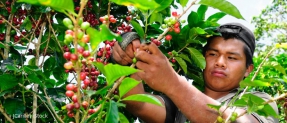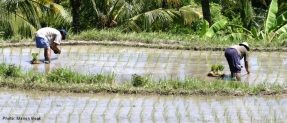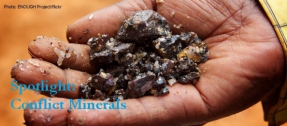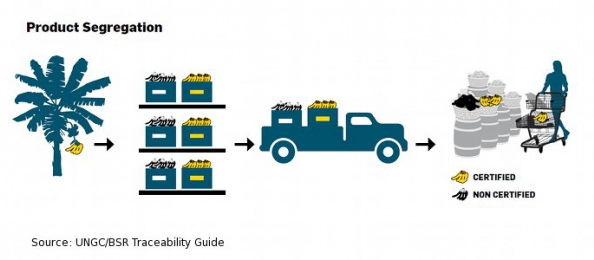Traceability
Certification Brings Positive Impacts and Better Traceability to Business
By Karin Kreider (ISEAL)Eco-labels and other sustainability marks on products are the way that most people experience certification. They are a window into production practices that might have taken place thousands of miles away – the connection between a forester in Brazil and a new piece of furniture; or a fishery in the North Atlantic and a meal of fish and chips; or a tea picker in Kenya and a morning beverage. But it is not only consumers who depend on labels to make informed decisions, it is also retailers and many other participants in the supply chain who are looking to improve their performance. more[...]

Strong Farmer Organizations, Stronger Future
By Caroline Hickson (Fairtrade Organization)Member-based farmer organizations are key partners to deliver effective programs on farm improvements, environmental protection, social compliance and well-being, and more.
more[...] ![]()

The Global Organic Covenant
By Markus Arbenz (IFOAM e.V.)The food crisis of 2008 and the burgeoning issue of climate change have given rise to a new discourse on agriculture, wherein its role in both creating and addressing global threats is being explored. The practice of agriculture and agribusiness has significant impacts on climate disruption; food insecurity; poverty and social inequity; loss of biodiversity; and the degradation of quality water supplies, soil, and air.
more[...] ![]()
“There’s no point in just checking off a list”
By Editorial TeamFairtrade wants to create a new label for textiles. Clothing made from fairly produced cotton is currently available, but further processing only has to comply with core labor guidelines of the International Labour Organization that prohibit violations such as child labor or forced labor. Going forward, the whole production chain will have to comply with fair standards, including conditions for the workers in the factories.
more[...] ![]()
-
Traceability models
Editorial TeamThere are three main models in terms of how traceability schemes trace sustainability claims. These models offer different approaches to tracking a claim and confirming it at each point in the supply chain. The three models are Product Segregation, Mass Balance, and Book and Claim. They are differentiated by the extent to which certified and non-certified materials are permitted to mix, as well as by claims that can be attached to the final product. more[...]
 The Author
The Author
-
World’s First Guide on Traceability Advances Supply Chain Sustainability
Elga Reyes, Eco BusinessThe United Nations Global Compact and BSR have released the first guide on traceability, which will help companies and consumers ensure that their materials and products are produced responsibly. more[...]
 The Author
The Author
-
UN Global Compact launches Food and Agriculture Business Principles
The UN Global Compact unveiled a set of six principles that food and agriculture businesses worldwide can adopt to meet food security challenges more effectively and sustainably. more[...]
 The Author
The Author
Spotlights

Conflict Minerals
Resource conflict is one of several destabilizing phenomena commonly cited as defining many of the extractive economies of the global south. Our Tutorial discusses all aspects of the issue with a special focus on US laws, SEC and Dodd-Frank Act regulations. more[...]

Eco Labels
In the 33 years since the world’s first eco-label appeared (Germany’s Blue Angel), these labels have proliferated. The Ecolabel Index currently lists 377 schemes in 211 countries and 25 industry sectors. A number of trends indicate it is time to take a closer look: Civil society continues to pressure business to take responsibility for supply chain performance. more[...]
| Title | Company | Year | Related tags |
|---|---|---|---|
| Supplier Assessment & Improvement Plans | IBM | 2012 | Supply Chain Management, IBM |
About Us // Privacy Policy // Copyright Information // Legal Disclaimer // Contact
Copyright © 2012-2018 macondo publishing GmbH. All rights reserved.
The CSR Academy is an independent learning platform of the macondo publishing group.










